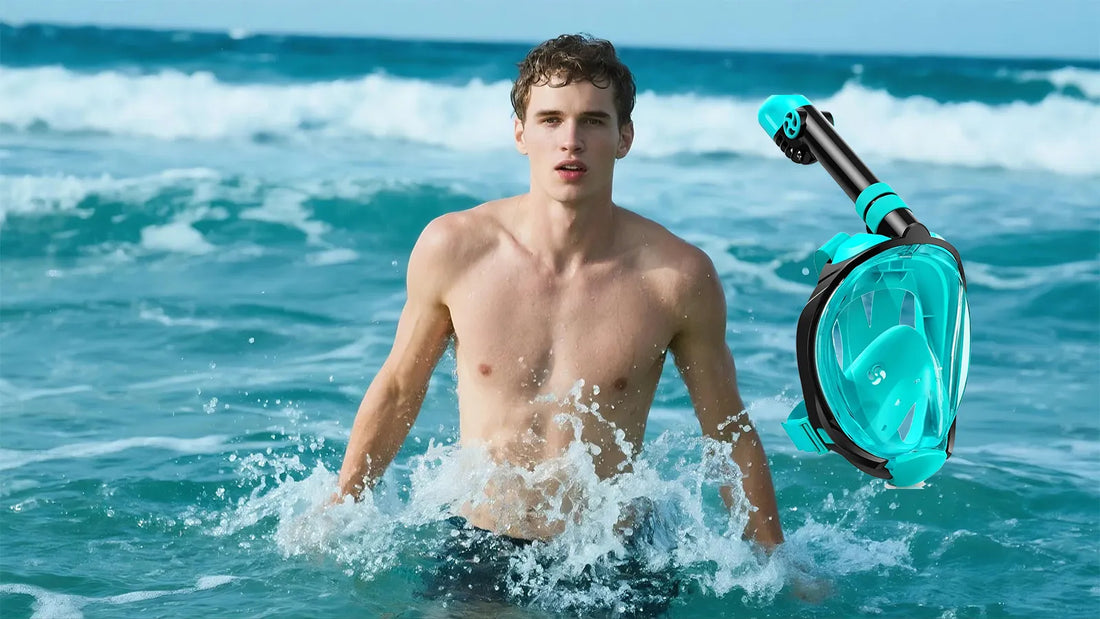Have you ever wondered what sets snorkeling apart from scuba diving? Both activities allow you to explore the underwater world, but they offer vastly different experiences. Whether you're a beginner or an experienced adventurer, understanding the differences can help you choose the right activity for your next aquatic adventure.
Equipment: What You Need for Each Activity
One of the most obvious differences between snorkeling and scuba diving is the equipment required. Snorkeling is relatively simple and requires minimal gear. Typically, you'll need a mask, snorkel, and fins. The mask allows you to see clearly underwater, the snorkel lets you breathe while floating face-down on the surface, and the fins help you move efficiently through the water.
Scuba diving, on the other hand, involves much more specialized equipment. In addition to a mask and fins, divers use a regulator, buoyancy control device (BCD), air tank, and often a wetsuit. The regulator allows you to breathe compressed air from the tank, while the BCD helps you control your depth and buoyancy. This additional gear makes scuba diving more complex but also enables you to explore deeper waters.
Depth and Duration: How Far and How Long You Can Go
Snorkeling is generally limited to the surface of the water. You can observe marine life and coral reefs from above, but you won't be able to dive deep. This makes snorkeling an excellent option for those who want a relaxed and accessible way to enjoy the ocean.
Scuba diving, however, allows you to descend to much greater depths. Depending on your certification level, you can dive as deep as 130 feet or more. This opens up a whole new world of underwater exploration, including shipwrecks, caves, and deeper reefs. Additionally, scuba diving allows for longer underwater sessions, as you're not limited by the need to return to the surface for air.
Training and Certification: What You Need to Know
Snorkeling requires no formal training, making it an easy activity for almost anyone to try. As long as you're comfortable in the water and can swim, you can snorkel. Many tour operators provide brief instructions and equipment rentals, so you can get started right away.
Scuba diving, in contrast, requires proper training and certification. Before you can dive, you'll need to complete a course that covers essential skills, safety procedures, and equipment usage. Certification programs are offered by various organizations and typically include both classroom learning and practical training in a pool or open water. This ensures that divers are well-prepared to handle the challenges of underwater exploration.
Experience: What to Expect Underwater
Snorkeling offers a more casual and surface-level experience. You'll float on the water, observing the vibrant marine life and coral reefs below. It's a peaceful and low-impact way to connect with nature, perfect for families or those who prefer a less physically demanding activity.
Scuba diving, on the other hand, provides a more immersive experience. You'll be able to swim alongside fish, explore intricate coral formations, and even encounter larger marine animals like turtles or sharks. The sensation of breathing underwater and the ability to move freely in three dimensions make scuba diving a thrilling and unforgettable adventure.
Cost: Comparing the Expenses
Snorkeling is generally more affordable than scuba diving. The equipment is inexpensive, and many destinations offer rental options. Additionally, since no formal training is required, you can save on certification fees.
Scuba diving, however, can be more costly. The equipment is more expensive, and certification courses can add to the overall expense. However, many divers find the investment worthwhile for the unique experiences and opportunities it provides.
Safety: What You Need to Consider
Snorkeling is considered a safe activity for most people, as long as you follow basic safety guidelines. Always snorkel with a buddy, be aware of your surroundings, and avoid areas with strong currents or dangerous marine life.
Scuba diving carries more inherent risks due to the depth and complexity of the activity. Proper training and adherence to safety protocols are essential to minimize these risks. Divers must also be aware of potential hazards like decompression sickness, equipment malfunctions, and marine life encounters.
Accessibility: Where You Can Do Each Activity
Snorkeling is highly accessible and can be enjoyed in many locations, from tropical beaches to calm lakes. It's a popular activity in destinations with clear, warm waters and abundant marine life.
Scuba diving requires more specific conditions, such as clear visibility and suitable dive sites. Popular scuba diving destinations include coral reefs, shipwrecks, and underwater caves. While it may require more planning, the rewards of scuba diving are well worth the effort.
So, what is the difference between snorkeling and scuba diving? The answer lies in the depth of your adventure, the equipment you use, and the level of commitment you're willing to make. Whether you prefer the simplicity of snorkeling or the thrill of scuba diving, both activities offer incredible ways to explore the underwater world. Ready to dive in? Your next aquatic adventure awaits!

